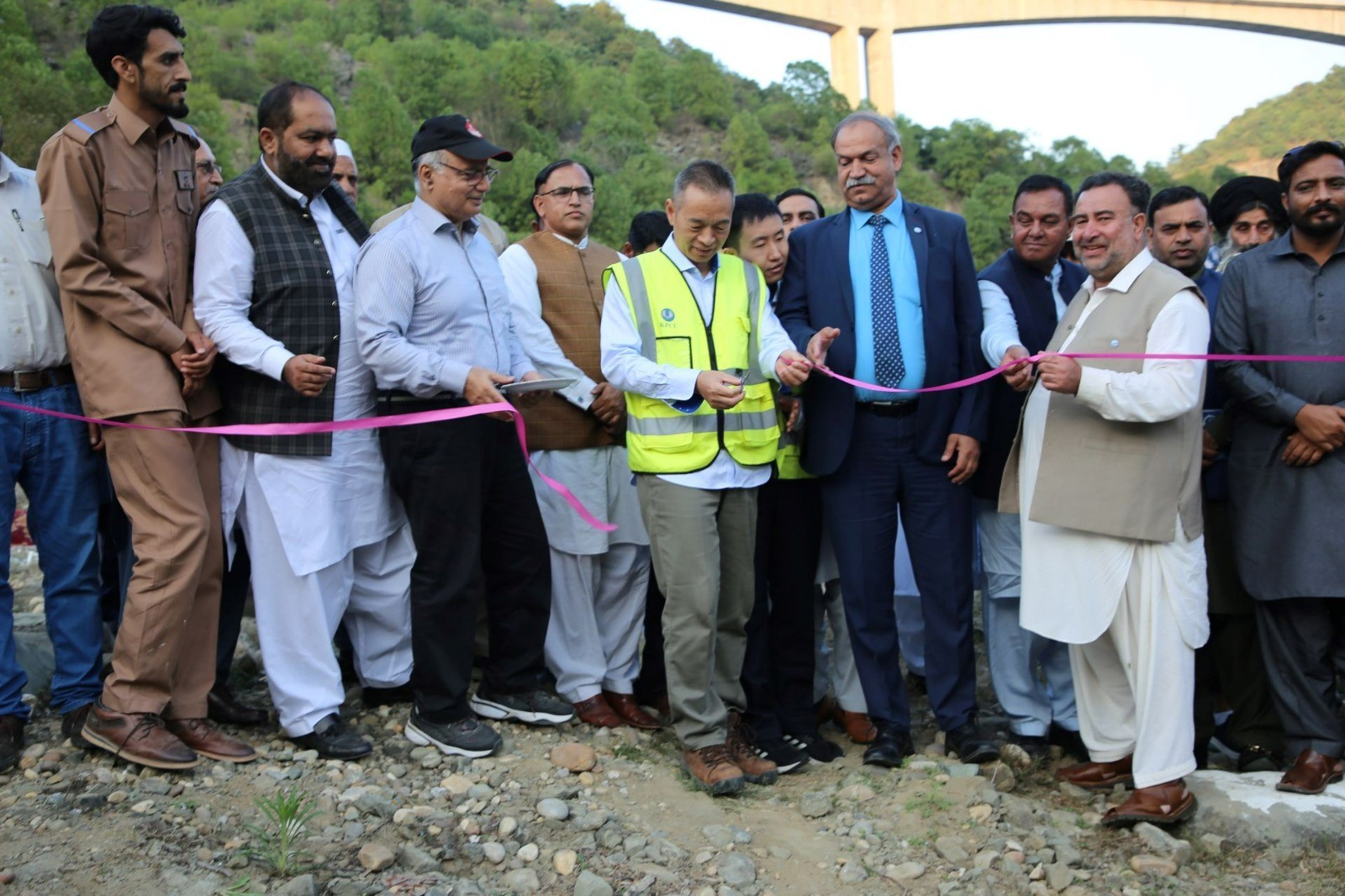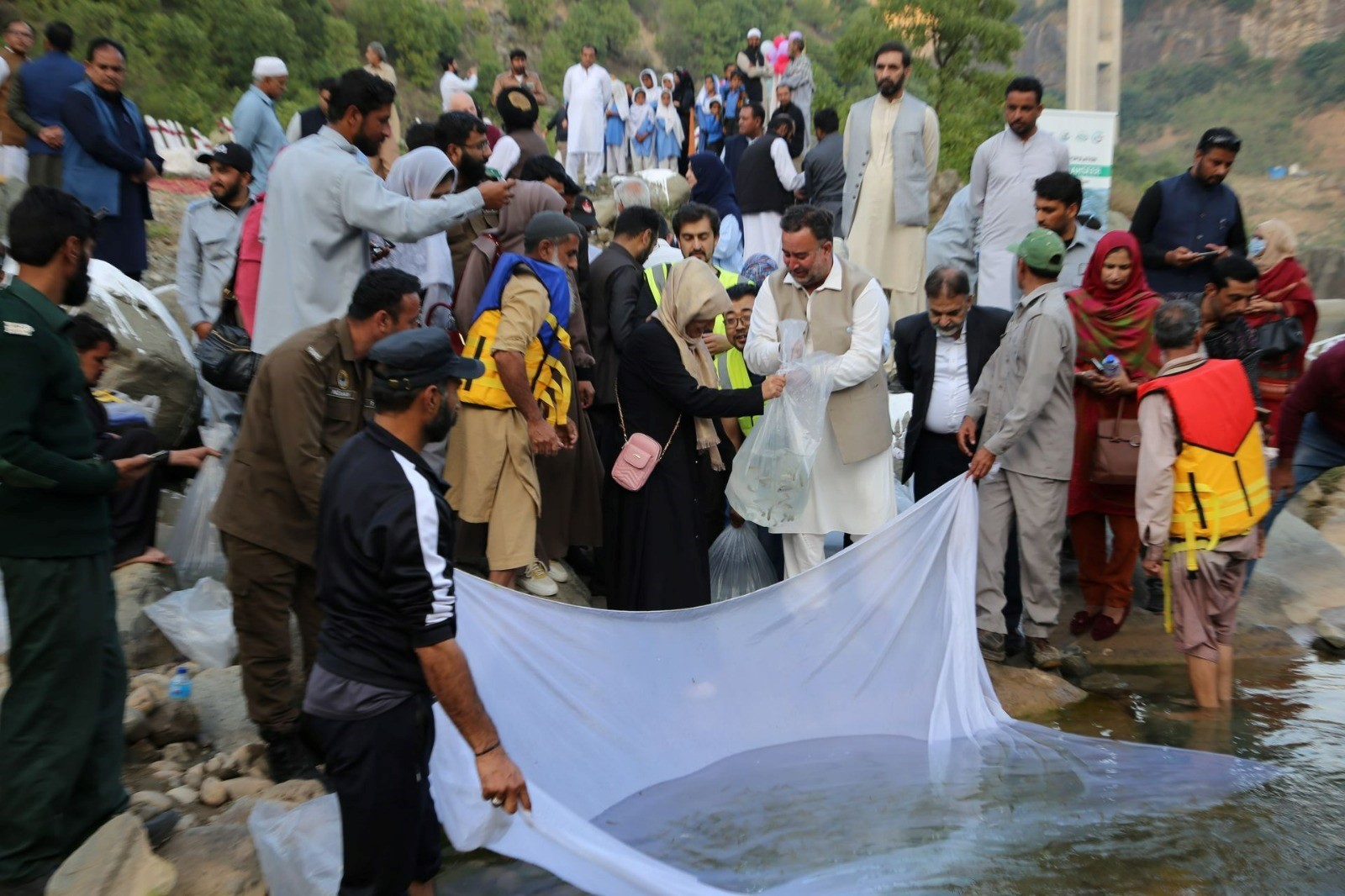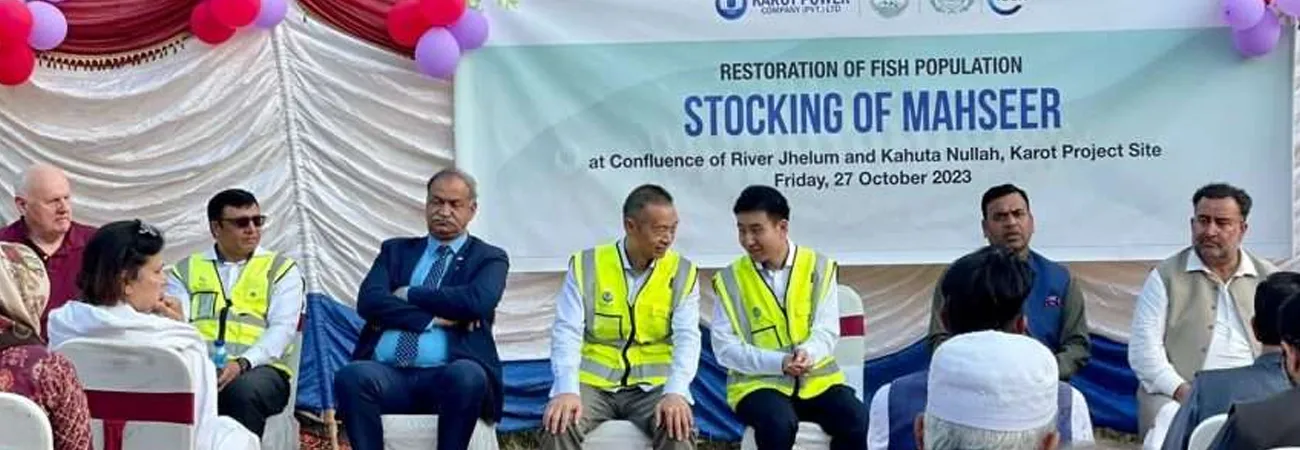i NEWS PAKISTAN
In a significant step towards conservation, the Karot Biodiversity Management Plan (BMP) successfully achieved a critical milestone with the release of 5,000 Mahseer fish stock at Kanandi, near Hollar Bridge. This initiative is part of an agreement between the International Union for Conservation of Nature (IUCN) and the Karot Power Company Limited (KPCL) to release 300,000 Mahseer fingerlings into the Jehlum River. The event marked a pivotal moment in safeguarding the endangered Mahseer fish, which faces numerous threats to its survival, including habitat destruction and illegal sand mining.

The release event was graced by the presence of Mr. Wang Yu, Deputy CEO of CSAIL, alongside his team, Karot HPP Employer’s Engineer, and government officials from various departments including Fisheries, Wildlife, EPAs, Forest, local administration, along with local community members and students from the environmental clubs.
In a speech delivered by IUCN Pakistan representative, the focus was on the organization’s mandate to preserve local biodiversity. This involves controlling illegal fishing, poaching, logging, and sand mining by actively engaging local communities, schools, government departments, and NGOs/CSOs. This approach is fundamental to the success of the BMP, aligning with the conservation and protection of the area's natural diversity.
Representing CSAIL and KPCL, Mr. Zhang Hao emphasized the objectives of BMP implementation and CTGI’s commitment to integrate biodiversity management into hydropower projects. He highlighted the ethical and environmental obligation in ensuring the sustainable development of renewable energy resources. Mr. Zhang further emphasized that while CSAIL's operations are crucial for meeting Pakistan’s energy needs, they are mindful of their environmental impact. Proactive measures have been taken to minimize harm and actively contribute to the well-being of the surrounding ecosystem. This release event is more than a symbolic gesture; it signifies a practical and responsible step towards conserving the Mahseer fish and preserving the biodiversity and overall health of the aquatic ecosystem.

Credit: Independent News Pakistan (INP)









